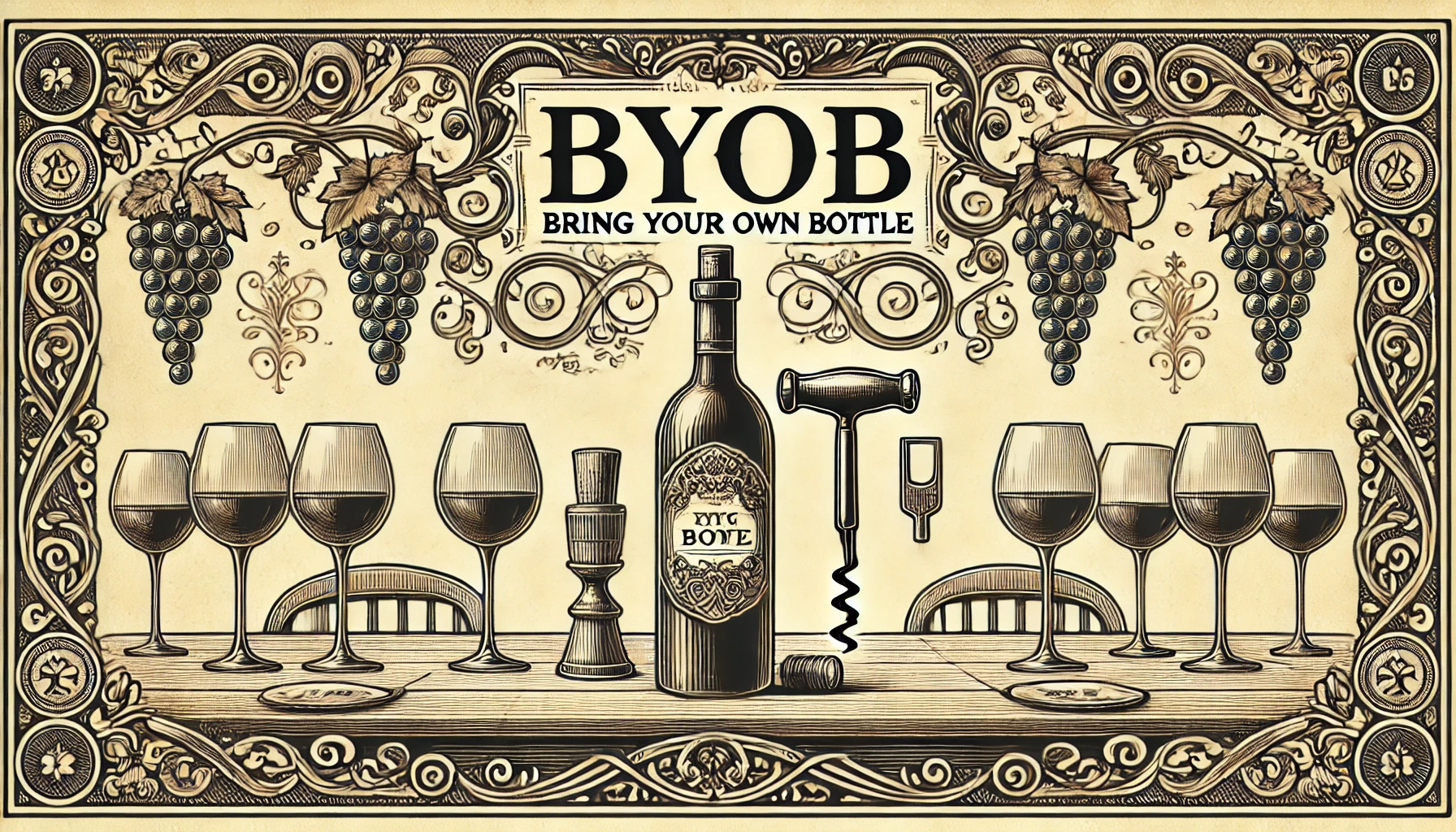
BYOB stands for “Bring Your Own Bottle.” It refers to a practice where diners bring their own wine or alcohol to a restaurant. The restaurant allows this instead of serving its own alcoholic beverages. Most BYOB establishments charge a corkage fee. This fee covers the service of opening and serving your wine and providing glassware.
The concept became popular in regions with strict liquor license laws. For example, in some parts of the United States, obtaining a liquor license is expensive. BYOB offers a solution for smaller restaurants to let diners enjoy wine without additional licensing costs.
Diners love it for its flexibility. You can bring your favorite wine, a special vintage, or something that pairs perfectly with your meal. It also saves money. Restaurant wine lists often mark up prices significantly. BYOB eliminates that extra cost. You only pay the corkage fee, which is usually affordable.
Etiquette Matters in BYOB Dining
First, call ahead to confirm the restaurant’s policy. Some places only allow BYOB on specific days. Choose your wine carefully to match the meal you plan to order. Avoid bringing something already on the restaurant’s menu. Offering a small taste to the server or sommelier is a kind gesture, though not required.
BYOB is common in many countries, but its popularity varies. In the United States, Australia, and parts of Ireland, it is widely embraced. In contrast, it’s rare in France, where wine culture is deeply tied to the restaurant experience.
It creates a unique dining experience. It blends the comfort of enjoying your own wine with the joy of restaurant dining. Whether you are celebrating a special occasion or having a casual meal, BYOB lets you make the experience personal and memorable.
Curious about more wine terms and insights? Visit our Wine Wiki section and explore the basic wine terms for expert definitions and tips!
[…] Bring Your Own Bottle (BYOB) […]